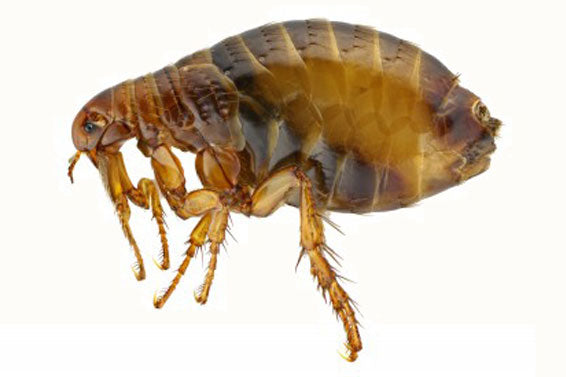
Fleas are quite impressive; their jumping distance, stamina, and all-around toughness make them "go anywhere" and "can do" kind of bugs. That's not a good thing. Fleas also make horrible house guests; they bite you, suck your blood, and live in your bed. This means people want to get rid of them and have created many different methods, all with varying levels of success, to remove these bugs from their lives.
We decided to take on many of the home remedies and solutions people use to tackle a flea infestation and put them to the test. We wanted to compare cost, safety, effectiveness, and ease of use for each of the various methods to determine the best home remedy for a flea problem. Here's what we found:
Exterminator:
Let's be honest, this is not a home remedy. This is an expensive choice that is a massive inconvenience and might not actually fix the issue. If your flea infestation is large enough to merit an exterminator, costs can range from $400-$2000, but that isn't necessarily the only price you will pay. A house that gets fumigated needs to be vacated for several days, meaning you and your family will need to go to a hotel, after treating yourselves and your pets for fleas. Fumigation and other poison-based pesticides can harm you and your family if the people you're working with aren't at the top of their game. While this approach does have its stresses, it can be convenient to hand this responsibility over to someone else.
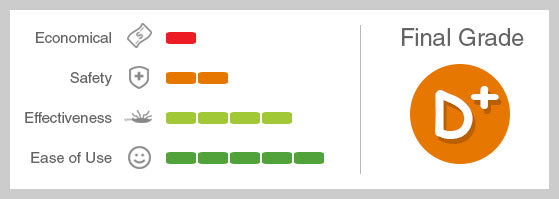
Bug Bombs:
This is another non-home remedy but a solution often relied upon to get rid of fleas. While much cheaper than a visit from the exterminator, foggers have similar issues to fumigating your home. You will need to leave for a few hours and then let your home air out. Exposure to the pesticides in the bug bomb can be damaging if not fatal. Leaving your home like this can be highly inconvenient and makes no promises about removing fleas from you or your pets. Various state health departments advise against repeated use, as it can cause a buildup of poison in your home. On their face, foggers are easy to use, just be sure to prep your home before your commit to any action.
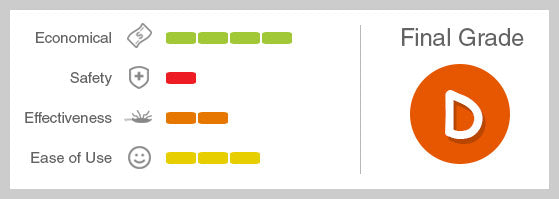
Herbal Flea Spray:
The first of our home remedies is one of the most basic home flea treatments. It is safe to use around your family and pets (so long as they don't have sensitive noses). Combine white vinegar, lemon juice, water, and witch-hazel in a spray bottle. This is not a flea killer so much as a flea repellent with varying degrees of effectiveness. You will need to spray areas of your home frequently and thoroughly to see any results. A primary complaint about using this method is the smell; you might not like living in a vinegary haze just as much as the fleas. You should begin to see flea numbers begin to drop after a couple of weeks.
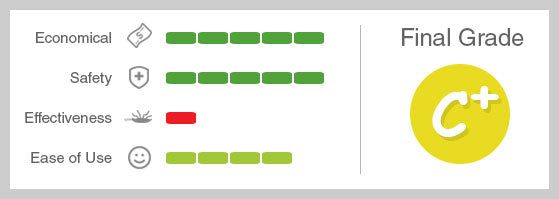
Salt Remedy:
Salt can help dehydrate fleas, which are already very dry insects (that's why they gravitate to humidity). This remedy is ruthlessly simple and works well for treating carpeted areas for fleas. Take table salt and, with a mortar and pestle, grind it into a fine salt powder. Then take the powder and dust it onto your carpets. Note that if you have small children or pets, covering your carpet in salt can do more harm than good. It might even turn your dog into an obsessive carpet licker. This remedy's limited scope and the tediousness of making salt powder hold it back from being one of our top contenders for flea treatment.
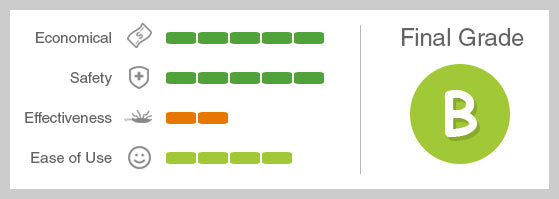
Pennyroyal Herb Remedy:
Pennyroyal works as an amazing flea repellent. Simply crush the leaves and the aroma alone will be able to deter fleas from congregating in the room. It doesn't even smell half bad. Pennyroyal, however has abortive properties and can do some serious damage to human and animal reproductive systems. If you are willing to be extremely cautious about using this herb it can be an effective and simple way to repel fleas, but if you aren't, it can have longterm effects on your and your family member's lives. The potential for reproductive complication is something to keep in mind when you consider using pennyroyal to keep fleas at bay.
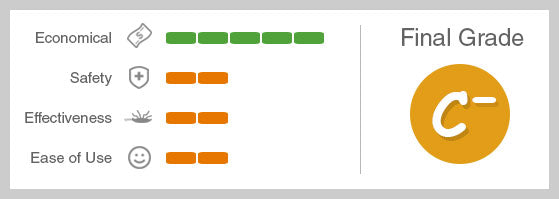
Rosemary Herb Remedy:
If you have a small to moderate flea infestation in your home, this extremely simple solution can help keep them under control but it won't kill them. This is another repellent solution. If you boil rosemary in water, you can then transfer it to a spray bottle and use it to treat your dog or cat, your furniture and linens, and your family members. This won't cure your whole home of a flea infestation but it can help keep them at bay. One of the downsides is that your house will smell like rosemary for the few weeks you will have to treat your home.
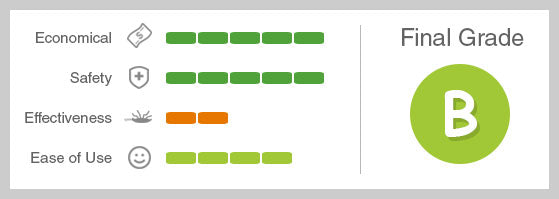
Dishwashing Liquid Flea Trap:
If you have a minor flea issue in a bedroom this is one of the most satisfying solutions to wake up to every morning. Take a plate and fill it with one part dish soap and two parts water, place a candle in the center of the plate, and, once you are about to go to bed, place the plate on the floor in your bedroom and light the candle. Through the night, some fleas will be attracted to the humidity and light of the candle and, while jumping toward the light, get caught and drown in the dishwashing liquid. It feels great to wake up in the morning and see a collection of fleas dead in the water. Of course, this method only has a limited effect because not every flea will leave the comfort of your bed for a flame. Also, keeping a lit candle in the middle of your bedroom floor while you sleep might not be the safest choice.
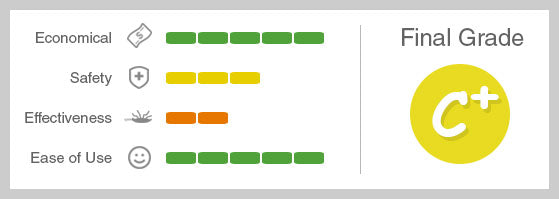
Diatomaceous Earth:
Diatomaceous earth is a fine white powder that works as a completely natural flea killer. There are no poisons involved, instead, diatomaceous earth kills fleas by puncturing their exoskeleton and absorbing vital fluids from the flea. You use DE by simply sprinkling it over furniture, bedding, or linens where fleas are present and, after a few days, vacuum/wash those same areas. Diatomaceous earth kills fleas "mechanically" instead of chemically because there is no poison involved; this makes DE a great option for use around you, your kids, and your family. The only thing to take into consideration is for those who are sensitive to dust. Being a fine powder, diatomaceous earth can become airborne quite easily. Breathing it in poses no additional dangers to any other mild dust, but you'll want to limit how much you inhale if you have sensitive lungs.
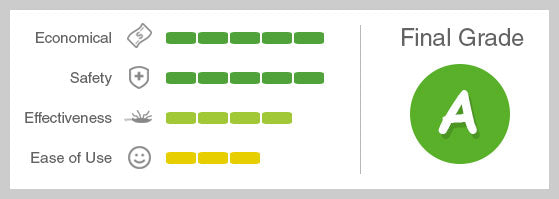
Conclusion:
We know that traditional pesticides often offer a false sense of efficiency in place of convenience, low costs, and safety. But the effectiveness of home remedies varies wildly, some can be dangerous, while others don't tackle the flea problem head-on. Carefully assess the needs of your family before you commit to any flea killer, natural, or poison based.


